
As the United Nations marks its 80th anniversary in 2025, this report by the Department of Economic and Social Affairs (UN DESA) traces the evolution of sustainable development within the UN system. It highlights the organization’s role in shaping both the understanding and the practical application of sustainable development.

The UN DESA Annual Highlights report is a tool to communicate the contributions of the Department to the realization of internationally agreed development goals and shared social, economic, and environmental aspirations. It showcases the Department’s role in gauging trends, building capacities, and shaping solutions. UN DESA Highlights 2025 covers activities over the period of the 79th Session of the General Assembly (September 2024 – August 2025) and reflects the Department’s response to the set priorities and expressed needs of Member States. Seven (7) thematic chapters showcase how UN DESA put its expertise to the task of supporting Member State efforts to implement the 2030 Agenda…
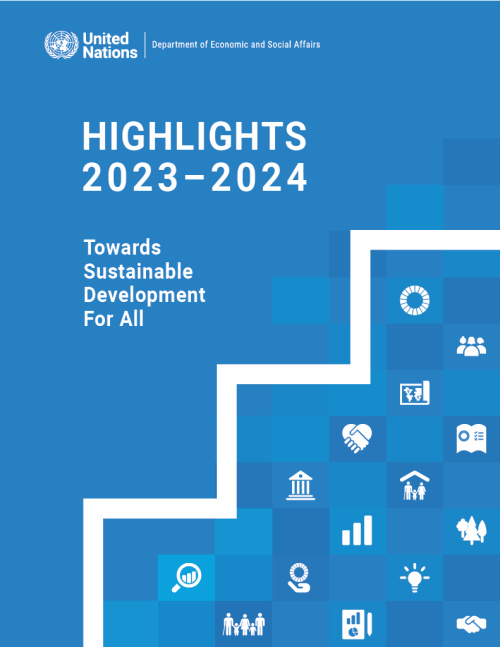
The UN DESA Annual Highlights report is a tool to communicate the contributions of the Department to the realization of internationally agreed development goals and shared social, economic, and environmental aspirations. It showcases the Department’s role in gauging trends, building capacities, and shaping solutions. UN DESA Highlights 2023–2024 covers activities over the period of the 78th Session of the General Assembly (September 2023 – August 2024) and reflects the Department’s response to the set priorities and expressed needs of Member States. Seven (7) thematic chapters showcase how UN DESA put its expertise to the task of supporting Member State efforts to implement the 2030…
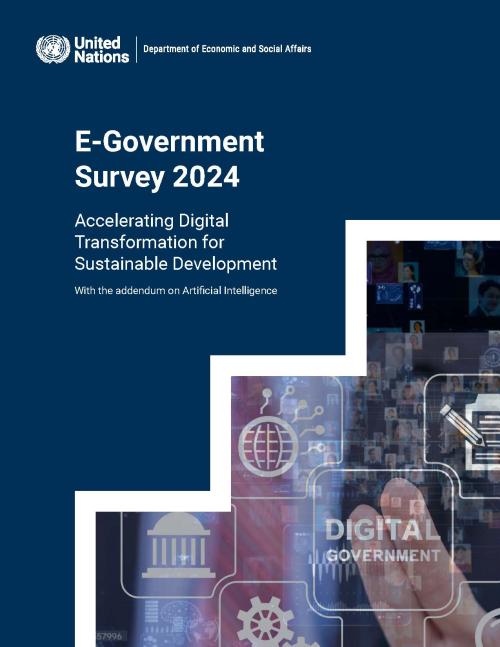
This thirteenth edition of the United Nations E-Government Survey, released in 2024, provides a comprehensive assessment of the digital government landscape across all 193 Member States. The 2024 Survey highlights a significant upward trend in the development of digital government worldwide, with increased investment in resilient infrastructure and cutting-edge technologies. The global average value of the E-Government Development Index (EGDI) shows substantial improvement, with the proportion of the population lagging in digital government development decreasing from 45.0 per cent in 2022 to 22.4 per cent in 2024.
Despite significant progress in digital government…
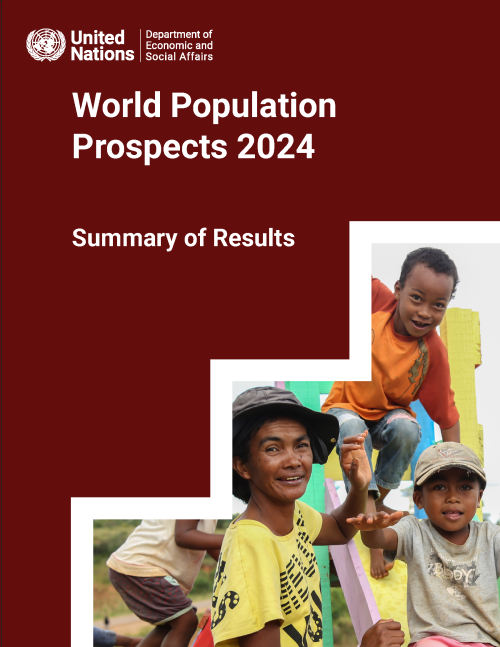
World Population Prospects 2024: Summary of Results adopts the analytical framework of the demographic transition—the historic shift towards longer lives and smaller families—approximated here by the timing at which populations peak in size, to explore differences in population trends that characterise countries and regions today and provide insight into their future trajectories. The report also offers policy recommendations to prepare countries for a population size, age structure and spatial distribution that may differ appreciably from that of their recent past.
World Population Prospects 2024 is the twenty-eighth edition of the official United Nations population…
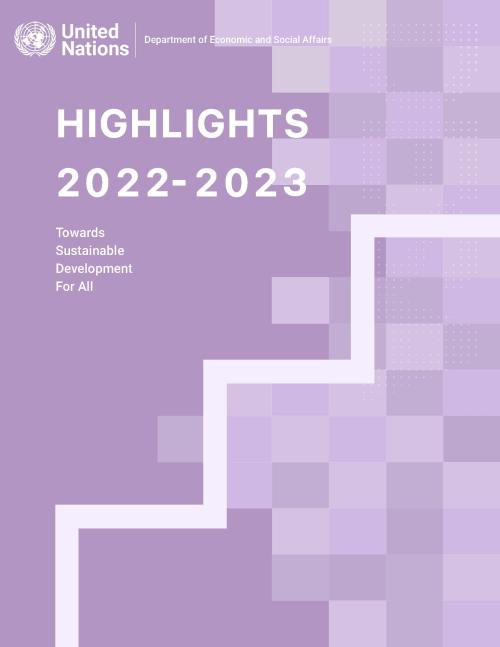
The UN DESA Annual Highlights report is a tool to communicate the contributions of the Department to the realization of internationally agreed development goals and shared social, economic, and environmental aspirations. It showcases the Department’s role in gauging trends, building capacities, and shaping solutions. UN DESA Highlights 2022-2023 covers activities over the period of the 77th Session of the General Assembly (September 2022 – August 2023) and reflects the Department’s response to the set priorities and expressed needs of Member States. Seven (7) thematic chapters showcase how UN DESA put its expertise to the task of supporting Member State efforts to implement the 2030…
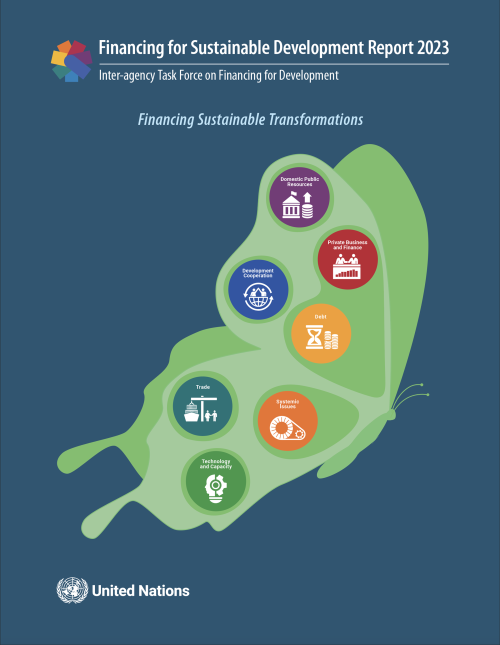
Sustainable development prospects continue to diverge between developed and developing countries. The 2023 Financing for Sustainable Development Report finds that SDG financing needs are growing, but development financing is not keeping pace. The war in Ukraine, sharp increases in food and energy prices, and rapidly tightening financial conditions have increased hunger and poverty and reversed progress on the SDGs. If left unaddressed, a “great finance divide” will translate into a lasting sustainable development divide.
Stakeholders must maintain a long-term focus on resilient and inclusive development, while addressing near-term crises. Delaying investment in sustainable…
The United Nations E-Government Survey 2022 is the 12th edition of the United Nations’ assessment of the digital government landscape across all 193 Member States. The E-Government Survey is informed by over two decades of longitudinal research, with a ranking of countries based on the United Nations E-Government Development Index (EGDI), a combination of primary data (collected and owned by the United Nations Department of Economic and Social Affairs) and secondary data from other UN agencies.
This edition of the Survey includes data analysis in global and regional contexts, a study of local e-government development based on the United Nations Local Online Service Index (LOSI),…
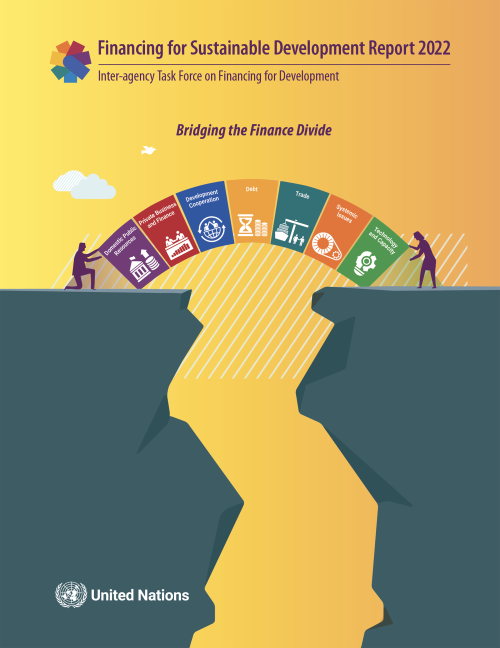
Developing countries still have to regain lost ground from the COVID-19 pandemic. The pandemic has put more countries at risk of debt distress, constrained their fiscal space and hampered economic growth. The war in Ukraine is exacerbating all these challenges. In this context, the 2022 Financing for Sustainable Development Report identifies a “great finance divide” – the inability of poorer countries to raise sufficient resources and borrow affordably for investment.
The great finance divide leaves developing countries unable to respond to crises and invest in sustainable development. On average, developed countries use 3.5 per cent of revenue to pay interest on their debt,…
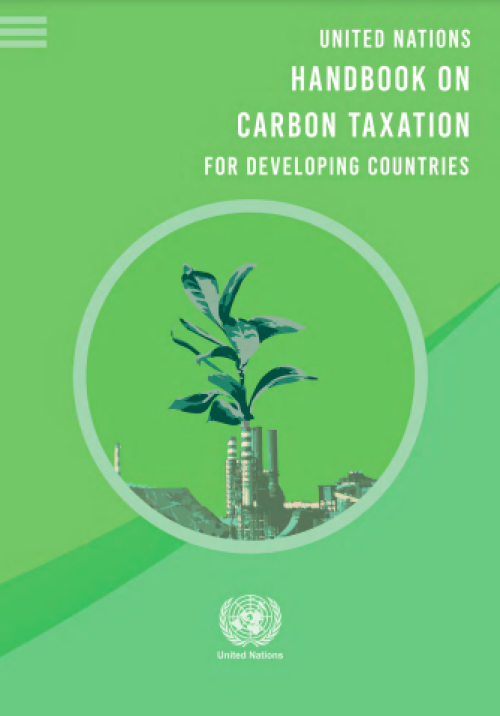
Environmental taxes are on the agenda of many developing countries, for both revenue purposes and for meeting countries’ commitments on climate change and sustainable development.
Carbon taxes are a policy option aimed at curbing carbon-based emissions responsible for climate change, in line with the commitments assumed by countries under the Paris Agreement. Carbon taxes put a price on the emission of greenhouse gases, thereby motivating companies to invest in cleaner technology or switch to more efficient practices. Likewise, consumers may be incentivized to invest in energy efficiency, change their lifestyle habits or, where options are available, switch to cleaner forms…
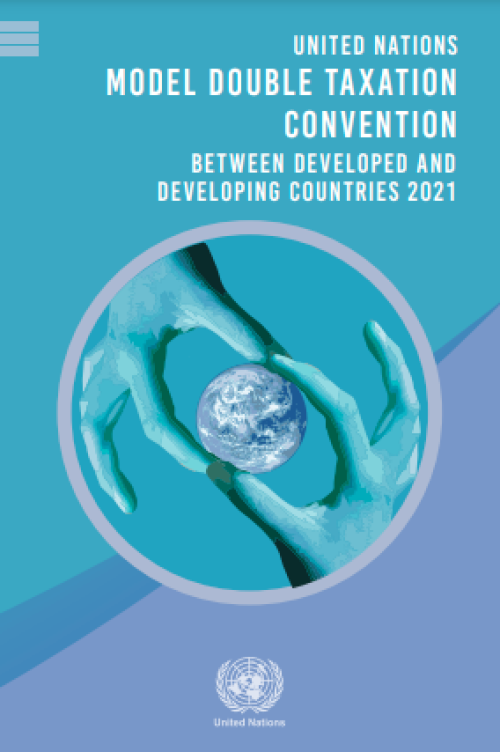
Double tax treaties aim to prevent unrelieved double taxation, in order to foster cross-border economic activity and the transfer of technology. Countries generally use models as a starting point when negotiating tax treaties. As the UN Model Double Taxation Convention between Developed and Developing Countries generally favours retention of greater host country taxing rights, it tends to be relied upon more by developing countries than the OECD Model Tax Convention on Income and on Capital.
The UN Model Taxation Convention consists of articles on the treaty’s scope and on definitions to be used in the treaty. For different kinds of income and capital, it allocates taxing rights…
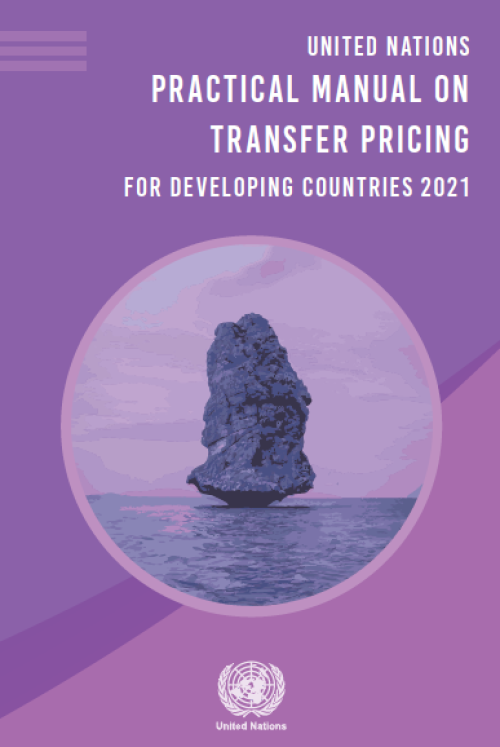
Transfer pricing is the general term for the pricing of transactions between related or associated enterprises. It should reflect the internationally accepted arm’s length principle embodied in Article 9 of the UN Model Double Taxation Convention between Developed and Developing Countries. It is particularly relevant to the global transactions of multinational enterprises, involving the transfer of goods, services and intangibles between enterprises of the multinational groups.
When transactions between associated enterprises do not reflect the arm’s length principle, profits might be shifted to low-tax or no-tax jurisdictions and losses and deductions shifted to high-tax…
 Welcome to the United Nations
Welcome to the United Nations